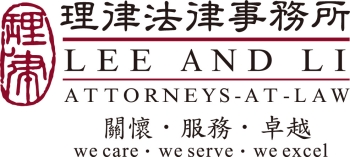Article 99(I) of the Patent Act provides that:
"where an article made by using a patented manufacturing process which is unknown within and/or outside of Taiwan before the filing of the manufacturing process patent, an article identical thereto made by another person shall be presumed as having been manufactured by using said manufacturing process."
The IP Court recently referred to this clause in Judgment 2017-Min-Zhuan-Shang-Zi-23 (January 25 2018) for determining the grounds for infringement using a patented manufacturing process.
The plaintiff owned Patent I298015 – its technical characteristics related to a system and method of growing vegetables with low levels of nitrate nitrogen.
The plaintiff claimed that multiple types of low-nitrate vegetable had been bought from a fresh produce supermarket owned by the defendant and sued the defendant for infringing Claim 1 (a cultivation system for low-nitrate vegetables) and Claim 2 (a cultivation method for low-nitrate vegetables) of the patent.
Regarding Claim 1, the court held that the plaintiff had failed to prove that the defendant's vegetables and cultivation system met all of claim's technical characteristics.
Regarding Claim 2, the court held that the plaintiff had failed to prove that the defendant's cultivation method met all of the claim's technical characteristics.
Therefore, under the 'all elements' rule, the court declared that neither claim had been infringed by the defendant.
The plaintiff argued that low-nitrate vegetables are grown artificially and that the disputed patent is the only process capable of producing low-nitrate vegetables. According to an SGS lab report, all of the vegetables sold by the defendant met the nitrate nitrogen standards defined by Claim 2 and their packaging was labelled "low nitrate".
Therefore, in accordance with Article 99(I) of the Patent Act, the low-nitrate vegetables sold by the defendant were presumed to have been made using the process outlined in Claim 2.
However, the defendant submitted an academic paper published before the patent's filing date which showed that growing vegetables using nitrogen-free water can effectively lower their nitrate levels to the same nitrate nitrogen standards defined by Claim 2. Further, the patent specifications acknowledge that the standards for residual quantities of nitrate nitrogen in vegetables in China and other countries fall within the range defined by Claim 2.
For the defendant, this proved that low-nitrate vegetables were known in and outside Taiwan before the manufacturing process patent had been filed.
The court held that the defendant's documents proved that low-nitrate vegetables were available before the patent had been filed. While the methods described in these documents may differ from those in Claim 2, the identical articles made using the manufacturing process outlined in Claim 2 were known in and outside Taiwan before the patent had been filed.
Therefore, the shifting of the burden of proof under Article 99(I) of the Patent Act did not apply – it was still necessary for the plaintiff to prove that the vegetables had been made using the same processing method outlined in Claim 2.
In practice, owners of manufacturing process patents cannot usually know the method implemented by an alleged infringer, which makes enforcing the patented manufacturing process difficult.
Taking international laws into account, the Patent Act provides for the shifting of the burden of proof. However, before filing an application, prospective owners of manufacturing process patents must consider whether an article made using a patented manufacturing process is unknown in or outside Taiwan (or otherwise protect the invention using a product patent).
For further information on this topic please contact Tsung-Yuan Shen at Lee and Li Attorneys at Law by telephone (+886 2 715 3300) or email ([email protected]). The Lee and Li website can be accessed at www.leeandli.com.
This article was first published by the International Law Office, a premium online legal update service for major companies and law firms worldwide. Register for a free subscription.



